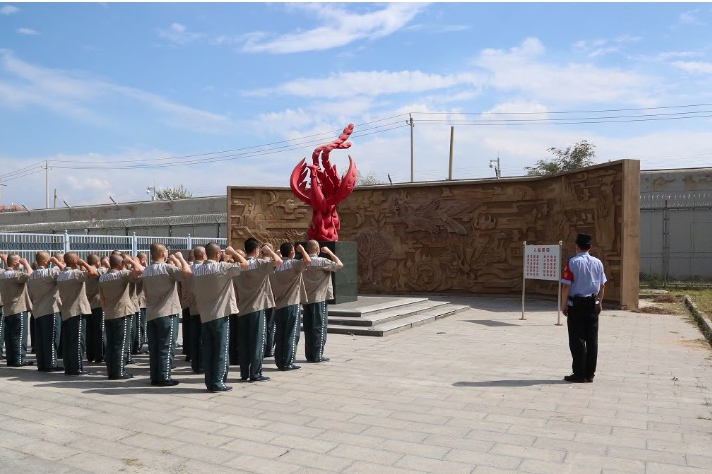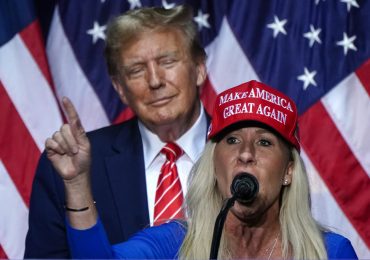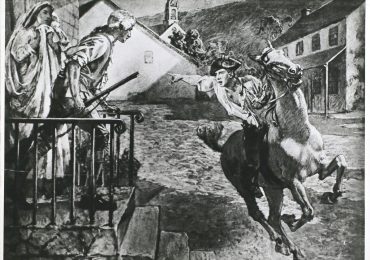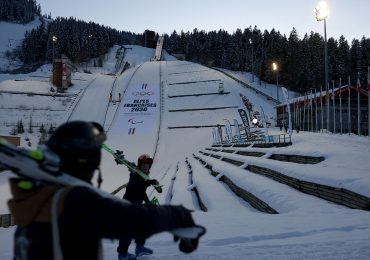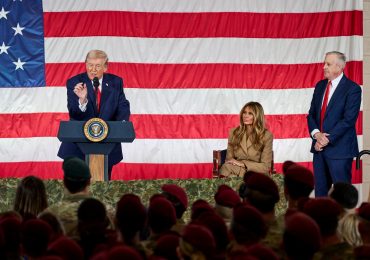ALLEGED British spook Ian Stones is believed to be suffering behind bars in one of China’s most hellish jails – Beijing’s Municipal No.2 Prison.
Known ironically as the “Sunshine Jail“, inmates are stuffed like sardines into cells and brainwashed with Communist propaganda, while reports of abuse and torture are rife.
ie.bjd.comInmates are forced to salute inside the high walls of Beijing’s Municipal No.2 Prison[/caption]
ie.bjd.comPrisoners are pictured being forced to practice making their beds[/caption]
China.orgThe detention centre has picked up plenty of allegations of abuse, torture and forced confessions[/caption]
Brit national Ian Stones was convicted of espionage by China in 2022 in a secret trial and is now being held in Beijing’s No. 2 Prison
Designated as a pre-trial detention centre, the No. 2 Prison appears to be the hole that China throws its foreign inmates into – many of which are convicted of spying.
On Friday, Beijing officials revealed for the first time that Brit businessman Ian Stone who vanished six years ago had been secretly jailed for spying.
Stone, roughly now aged 70, carved out a lucrative career in China for over 40 years, working for huge firms including General Motors and Pfizer.
He was jailed for five years in 2022 after being held on suspicion of industrial espionage since 2018.
Now, his daughter Laura revealed he is fighting for his life inside a notoriously grim Chinese prison, which UK officials claim is the capital’s No.2 Prison.
Inside its walls, he is said to be denied access to adequate medical care and is suffering from life-threatening injuries and severe health conditions after years of neglect and poor nutrition.
Inside hell
Both No.2 and its fearsome twin No. 1 prison – which hosts death row inmates and those serving life sentences – have long been associated as places of horror.
The sites have picked up plenty of allegations of overcrowding, abuse, forced confessions and suspicious deaths.
Their names alone are enough to send a shiver down the spine of any Beijinger.
But not a lot is truly known about what happens deep inside their eight metre-high, heavily-guarded walls.
One of the first official reports came in 2003 from jailed Chinese dissident Wang Xiaoning, who was sentenced to 10 years in prison for “incitement to subvert state power”.
He served most of his time inside No.2 Prison and barely saw the light of day for years.
According to a complaint launched to the World Organisation for Human Rights, he was denied “any access to recreation or even sunlight for weeks and even months at a time, even though the standard at the prison is to allow prisoners outside once a day.”
In the early 2010s, both No. 2 and No. 1 prison underwent a revamp to attempt to scrub up their outward reputations.
In 2012, foreign media was allowed the tiniest glimpse inside what China was now calling their new “sunshine detention centres”.
Cameras had been installed in interrogation rooms to reduce the change of torture, health examinations were made mandatory, a library was opened and inmates were allowed noodles on their birthday.
However, more recent testimonies from former detainees have revealed that No. 2 Prison is still a horrific horror show.
Japanese businessman Hideji Suzuki, now 67, was arrested by China in 2016 on suspicion of espionage – claims he denied.
After years of interrogation, he was eventually convicted and jailed and sent to No.2 Prison in 2019.
Once there, Suzuki described being quickly forced to take part in “education for newcomers”.
This torturous training involved inmates being forced to relentlessly sing revolutionary songs about the Communist Party.
Suzuki had to endure five weeks of this “brainwashing”, Japanese news outlet, Mainichi reports.
Prisoners were forced to salute propaganda programmes and films on the history of the Communist Party, as well as heavily-slanted renditions of past wars that shone China in a positive light.
He slept on floorboards, shared a cell with 12 prisoners, and lost weight quickly.
After six-and-a-half agonising years, Suzuki was finally able to leave the prison and China for good, weighing under 68kg.
AFPIn 2012, Beijing’s No. 1 and No. 2 prisons allowed foreign journalists a limited peak inside[/caption]
ie.bjd.comFormer inmates described being brainwashed, forced to sing Communist mantras and watch propaganda videos[/caption]
ie.bjd.comLife inside the prisons remains largely secretive except for a few accounts[/caption]
AFPChina attempted to revamp both No. 1 and No. 2 prison into ‘sunshine jails’ in the early 2010s[/caption]
High alert
For almost a decade, Beijing has been intensified attempts to crackdown on potential threats to its natural security – creating ever more sweeping laws to lock up potential spies.
In 2014, Xi Jinping brought a sweeping counterespionage law into place, which followed with the National Security Law in 2015 – strengthening the surveillance on foreign nationals.
What has followed is frequent interrogations and arrests of foreign nationals and a severe clampdown on foreign firms operating in the country.
Helping to infest a state of paranoia inside the country, China has been encouraging people to join counter-espionage work that includes creating channels to report suspicious activity.
Espionage paranoia
Britain and China have traded barbs in recent months over allegations of perceived espionage and its resulting impact on national security.
But in recent weeks, Beijing has been stepping up warnings over national security and the threat of foreign spies.
Earlier this month, China arrested the head of a foreign consultancy firm after claiming they were spying for Britain’s MI6 intelligence service.
Beijing said the suspect – who is neither British nor Chinese – had been stealing state secrets for the UK’s Secret Intelligence Service since at least 2015.
Beijing’s feared Ministry of State Security revealed the suspect’s surname was Huang, but did not give further details on his identity.
In a statement, they said the foreign national had tried to establish an “intelligence cooperation relationship”.
The UK has in turn warned that Chinese spies are increasingly targeting officials – allegations that Beijing has denied.
However, claims of a Chinese spy working at the heart of the UK government represented a possible major escalation in Beijing’s attempts to interfere with British democracy.
A government researcher in September was arrested under the Official Secrets Act, although they subsequently denied spying for Beijing.
In July, the UK also investigated allegations that a Chinese spy disguised as a tourist attempted to infiltrate parliament.
It followed Security Minister Tom Tugendhat blasting China for running “unacceptable” and secret police service stations in the UK.
In the last year, China, which has a broad definition of state secrets, has highly publicised several other alleged spying cases.
In May, Chinese authorities sentenced 78-year-old American citizen John Shing-wan Leung to life in prison for espionage.
China last year also conducted raids on a string of big-name consulting, research and due diligence firms.
Last May, China said it had raided the offices of US consultancy firm Capvision in order to safeguard its “national security and development interests”.
AFPBrit Ian Stone has reportedly been denied medical care inside the grim jail where he is suffering from life-threatening health issues[/caption]
AFPInmates described not being able to see the light of day for months on end[/caption]
Beijing has been intensifying its crackdowns on people and companies they believe pose a threat to national security
Leave a comment
